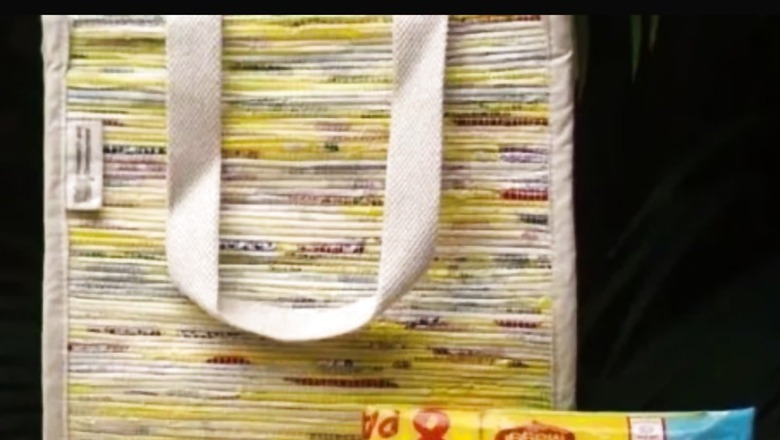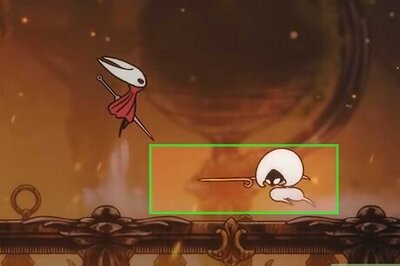
views
Waste is the future. Brands are now trying to make the most of this previously overlooked resource by transforming it into new, highly desirable products. The Indian start-up EcoKaari, for example, collects all kinds of plastic packaging to create unique handbags using traditional techniques.
Combining concern for the environment with traditional craftsmanship — that’s the challenge that Nandan Bhat, founder of the start-up EcoKaari, based in Pune, India, has set himself. EcoKaari collects waste, destined to pollute the land and oceans, and transforms it into handbags of all kinds. A contraction of the words ‘Eco’ for ‘ecological’, and ‘Kaari’ for ‘Kaarigar’, which means ‘craftsperson’ or ‘artisan,’ this social enterprise aims to preserve the environment by repurposing waste while highlighting the work of Indian craftspeople, including women and young people from modest backgrounds.
“Our name represents the relationship between the Artisans and Environment, and they both are interconnected and interdependent. India’s handicraft heritage has continually drawn inspiration from the environment, and Mother Earth has always been an integral part of our lives. Traditionally, our craft techniques have always believed in upcycling, material optimization, and waste minimization,” reads the brand’s e-store.
To achieve this, the start-up has partnered with waste collection organizations and retailers to collect its materials of choice. This waste, a (far too) inexhaustible resource, also comes from donations made by the public, be it plastic bags, or packaging from cookies, potato chips, instant noodles, or laundry detergent, gift wrap, or even old audio and video tapes. Everything is then disinfected and dried, then manually cut into strips, before being upcycled, spun and woven using traditional tools, including the charkha, a kind of Indian spinning wheel. Then all that remains is to create the brand’s bags and other products from these freshly woven fabrics.
From handbags to wallets, tote bags and book covers, all the products in the brand’s e-store — most of which are sold out, victims of their success — have been handmade by artisans from all kinds of waste. This forms part of a real environmental and social commitment, which also allows many craftspeople to practice their skills in optimal conditions. In keeping with its philosophy, EcoKaari is also committed to improving the lifecycle of its products by repairing them for free, and taking back its bags at the end of their life to put them back into the production loop, or to destroy them responsibly.
In an interview with Business Insider India, Nandan Bhat said that in one year, the brand has recycled nearly 1.7 million plastic bags and packaging items, and that this could rise to more than 4.7 million items in the next fiscal year.
Read all the Latest Buzz News and Breaking News here
















Comments
0 comment